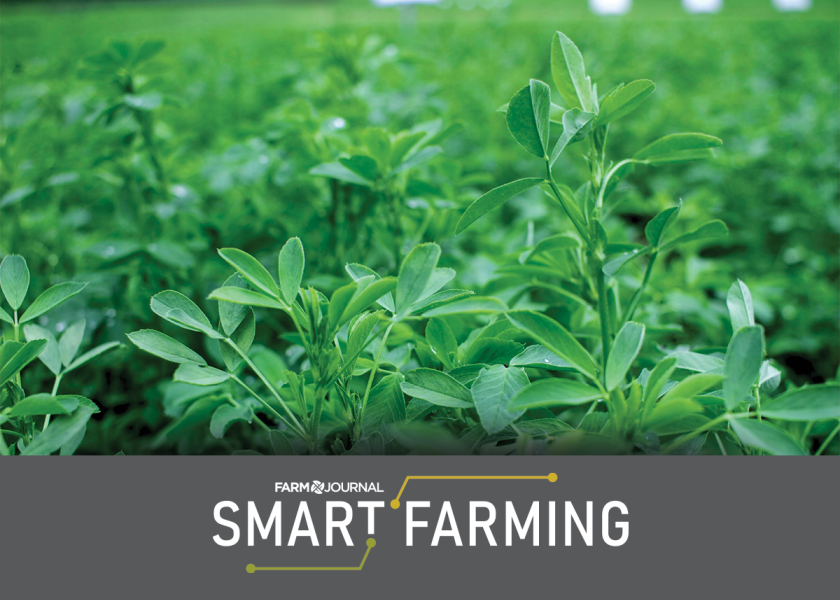Data From New Trials Boasts Yield Boosts With Biologicals

Farm Journal’s Smart Farming Week is an annual week-long emphasis on innovation in agriculture. The goal is to encourage you to explore and prioritize the technology, tools and practices that will help you farm smarter. Innovation today ensures an efficient, productive and sustainable tomorrow.
Two new studies from Locus Ag and Pivot Bio found the use of biological products consistently increased yields in a variety of crops.
When testing Locus Ag biological products, trials analyzed by contract research organizations and universities found yield increases between 4.2% to 26% in specialty crop varieties and between 5.2% to 37% in row crop varieties.
“In a time when the agricultural sector is navigating challenges such as climate variability, rising input prices and the need for sustainable practices, Locus Ag’s USA–made biological solutions are more vital than ever,” said Kade Haas, SVP of Locus Ag. “Farmers can’t leave anything to chance. This data confirms that no matter what crop they grow or where they grow it, these premium biologicals are going to take their farming to the next level and ensure they have a successful growing season.”
The products were tested across the U.S. in locations with varying growing conditions. But while 11 specialty crops and 12 row crops were tested, it’s important to note only alfalfa, canola, corn, cotton, potato rice, soybeans and wheat had a 95% or higher confidence rate in the reliability of the results.
To view the specific yield gain for each crop tested with Locus Ag biological products in the study, click here.
Data from another study conducted by The University of Kentucky’s Martin-Gatton College of Agriculture, Food and Environment found replacing 40 lb. of synthetic nitrogen with Pivot Bio’s Proven 40 led to higher corn yields.
During these trials, corn was planted at a rate of 32,000 seeds per acre under no-till and cover crop conditions. Proven 40 was applied in furrow with additional nitrogen treatments of 140 lb. and 180 lb. per acre. Data showed the different amounts of nitrogen led to similar yield results, while the addition of Proven 40 increased yields.
"The study's findings underscore the potential of microbial nitrogen fertilizer to maintain and even increase crop yields while reducing dependency on synthetic fertilizers," said Clayton Nevins, senior agronomic scientist for Pivot Bio. "Not only are you replacing 40 lb. of synthetic nitrogen, but you are also delivering nitrogen straight to the roots, boosting plant health earlier in the season."
Related Stories:
Farmers Share Biological Experiences Through New Mosaic Initiative
DPH Biologicals Expands Research to Quantify Potential of Biologicals







